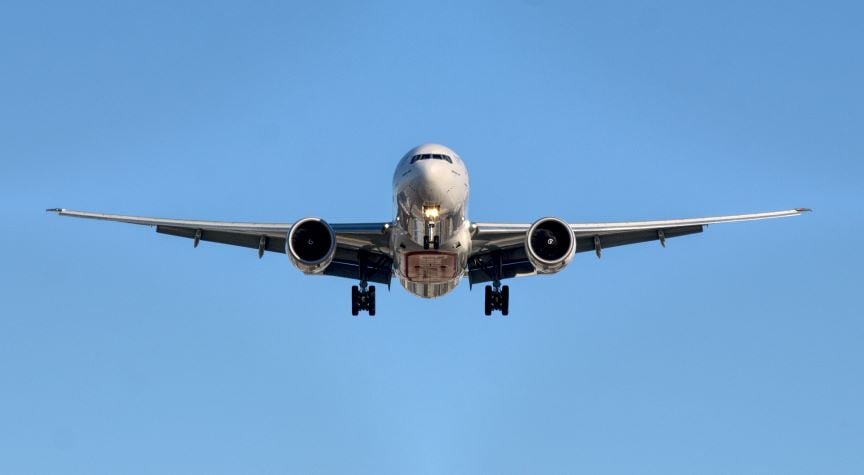A Primer on the Excise Tax Refund for Frequent Flyer Miles

Purchasers of frequent flyer miles from domestic airlines may be eligible to claim a refund of the 7.5% federal excise tax paid upon such purchase. Hotels, retailers, banks, foreign airlines, and car rental companies typically purchase these miles from domestic airlines for use in their rewards programs. Members of these rewards programs can then redeem points for a variety of goods and services, including air travel.
Taxation of Frequent Flyer Miles
A federal excise tax of 7.5% is imposed on the amount paid for taxable transportation of persons by air1, which includes amounts paid to an air carrier for the right to provide mileage awards redeemable for taxable transportation.2 Taxable transportation generally means a flight that begins domestically or from the designated zone in Canada or Mexico — generally within 225 miles of the domestic border — and ends domestically or within such zone.3 If a holder of frequent flyer miles redeems them for any other item offered by the rewards program, such as international flights, gift cards, hotel stays, subscriptions, rental cars, televisions, or services, such item is considered nontaxable transportation and not subject to tax. Although the excise tax is scheduled to expire Sept. 30, 2023, prior scheduled expiration dates have been extended.4
While the Treasury Department has the authority to promulgate regulations regarding amounts attributable to mileage awards used for nontaxable transportation, the Treasury Department has not exercised this power.5 The IRS has issued only limited guidance regarding the taxation of frequent flyer miles and claims for refund,6 principally Notice 2015-76. Prior to the issuance of regulations — which have not yet been issued — taxpayers may rely on the guidance set forth in this notice.
The notice clarifies that a purchase of mileage awards that may be redeemed for taxable transportation or nontaxable transportation is subject to the excise tax on the entire amount, but taxpayers may use a reasonable method to allocate amounts paid — and the value of any other benefits provided — between the purchase of taxable transportation and nontaxable transportation. Taxpayers may file a refund claim for the portion of excise tax paid on those frequent flyer miles that are redeemed for nontaxable transportation.
Filing a Claim
Who: Generally, the party subject to tax, in this case, the purchaser of the mileage awards, makes any claim for refund of the excise tax. The purchaser of the mileage awards (the taxpayer) is required to pay the excise tax, and the party receiving payment (generally, the airline) is treated as the collector or collecting agent.7 As the collector, the airline must collect the amount of the excise tax from the purchaser and remit the tax to the IRS.8 The collector — rather than the purchaser — is permitted to submit a refund claim if the collector either (1) establishes that the collector has repaid the amount of the excise tax collected on nontaxable transportation to the purchaser or (2) obtains the consent of the purchaser to the allowance of such refund.9
What: The amount of any excise tax paid for mileage awards that are redeemed for nontaxable transportation — generally the amount paid for any mileage points that are redeemed for an item other than domestic transportation — is the amount eligible for a refund claim.
When: Claims may be submitted within three years from the date the return was filed or two years from the date the tax was paid, whichever period expires later, or if no return was filed, within two years from the date the tax was paid.10
How: A taxpayer typically claims a refund of the excise tax by filing IRS Form 8849, setting forth the relevant information substantiating the refund.
IRS exam teams have been reviewing all claims for refund and beyond the basic requirements outlined above, taxpayers subject to the excise tax on nontaxable transportation must consider additional issues relating to such items as quantifying, claiming, and substantiating a refund claim for any excise tax paid in respect of nontaxable transportation. If you have any questions about how I.R.C. Section 4261 requirements apply to a specific factual scenario, please contact an attorney in Taft’s Tax practice.
1IRC § 4261(a).
2IRC § 4261(e)(3).
3IRC §§ 4261(b)(2), 4262(a)(1).
4IRC §§ 4261(k)(1)(A)(ii).
5IRC § 4261(e)(3)(C); see also, Excise Taxes; Transportation of Persons by Air; Transportation of Property by Air; Aircraft Management Services, 85 FR 46032-01 (reserving Treas. Reg. § 49.4261-9(b) to exercise the authority granted in IRC § 4261(e)(3)(C)).
6See IRS Notice 2002-63 2002-40 I.R.B. 644 (2002) and Rev. Rul. 2002-60, 2002-40 I.R.B. 641 (2002) (addressing transactions with foreign airlines); IRS CCA 201606028 (Feb. 5, 2016) (determining that certain nontransportation items can be excluded in cases where payments are bundled with transportation services).
7Treas. Reg. 49.4261-1(b)(1).
8Id. The collector also must report the excise tax collected on IRS Form 720.
9IRC § 6415(a); Bombardier Aerospace Corp. v. United States, 831 F.3d 268, 272 (5th Cir. 2016).
10IRC § 6511(a).
In This Article
You May Also Like
EPA Withdraws Endangerment Finding, Rescinds Vehicle GHG Emission Standards Another Push Toward CMMC Compliance — This Time at GSA